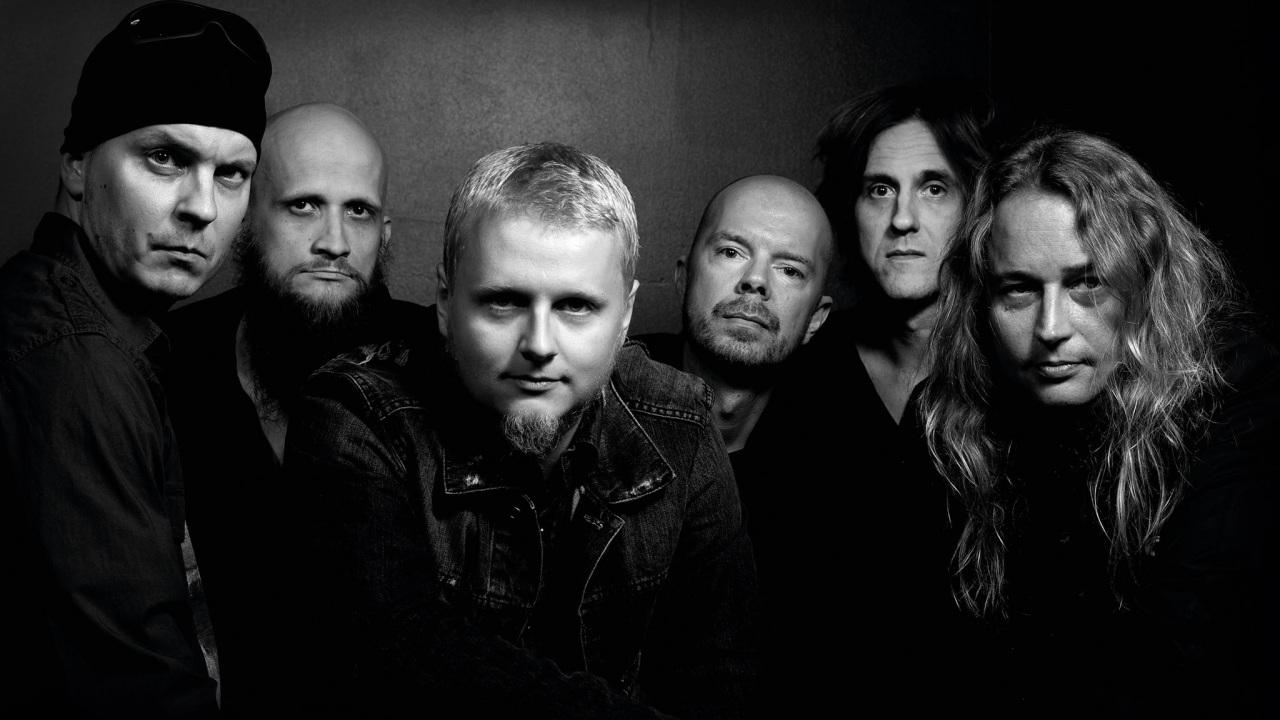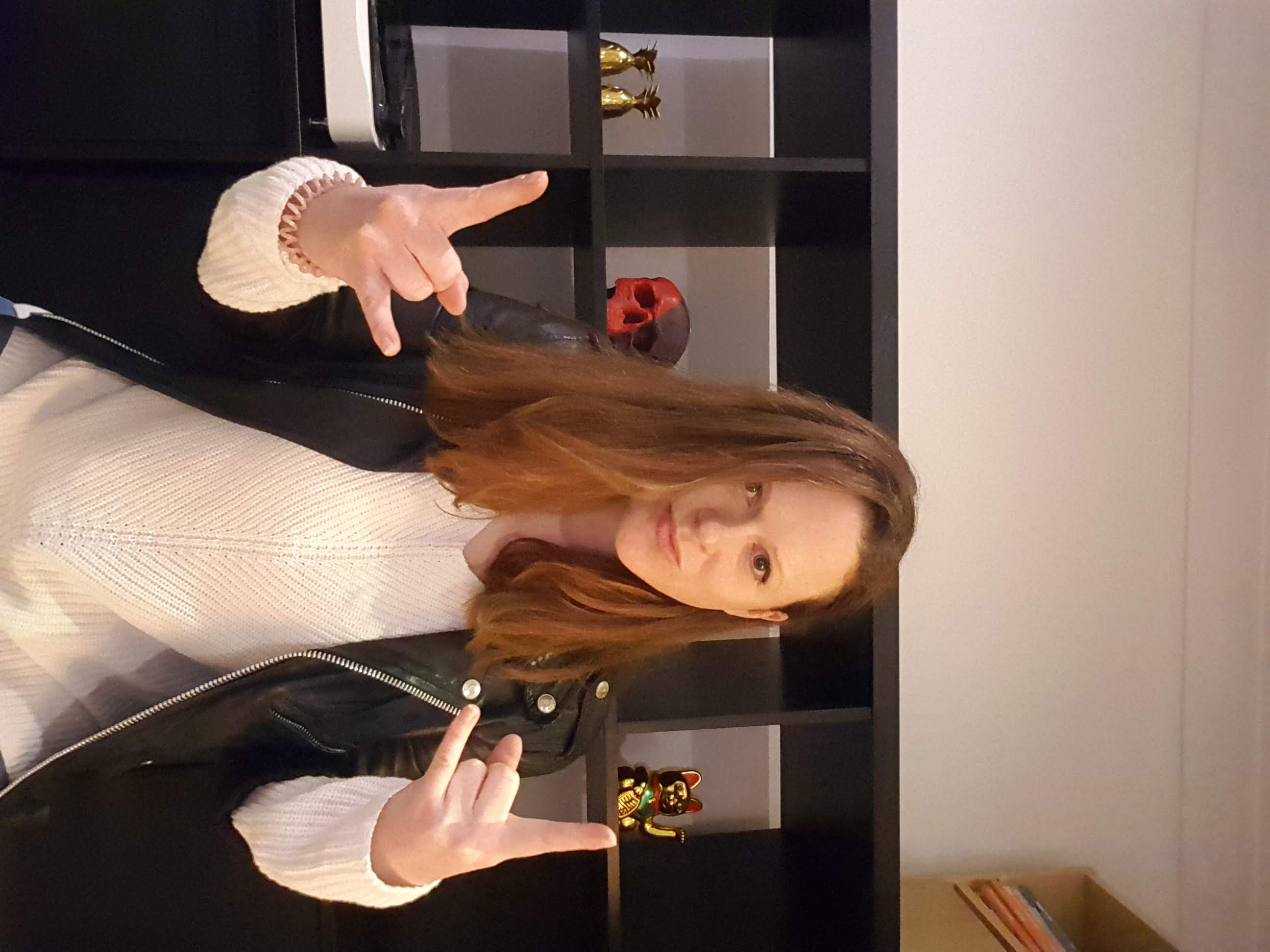But now, with a new label, a new singer and lucky album number three, the Finns are poised to take their new project centre stage.
Mention ‘side project’ to many self-respecting music fans and you might get a reaction comparable to catching a sniff of something unsavoury in a lift. But not in the case of Finland’s progressive death metal supergroup Barren Earth. In their eight years together, Barren Earth have created an unnervingly good concoction of bristling metallic odes, 70s prog and folkish instrumentals that has moved them away from the preconceptions often reserved for many side projects.
Featuring current, ex or session members of Amorphis, Moonsorrow, Kreator, Turisas and Clouds, Barren Earth have a strong heritage, but have often been overshadowed by their commitment to full-time projects. But with a new singer, new management and a new record label, is 2015 the year that Barren Earth will finally be viewed as a fully-fledged band?
“The band is more serious now that we have changed record labels,” says keyboardist Kasper Mårtenson. “We’re working with Century Media now and they seem to like the album very much and are making an effort, so it seems like the whole process of the promotional campaign for the new album is happening on a bigger scale. And that adds to the whole feeling that Barren Earth is bigger than it was.”
In 2010, Barren Earth released their first album Curse Of The Red River, a richly textured and forceful record echoing Opeth and Amorphis in their early years. Crammed full of progressive nuances and lofty metallic sections, it was ferocious yet glued together by moments of melodic sweetness. It was hard to believe that a side project could turn out a record of such majesty.
“It helps that it’s not the number one priority for everyone,” admits Mårtenson. “In the early days we felt like we could do it without any pressure. Back when we did the first album nobody even knew that we had the band so we could pretty much do what we wanted.”
A couple of years later in 2012, they released second album The Devil’s Resolve, which was fronted by Swallow The Sun’s Mikko Kotamäki. However, clashing schedules eventually got the better of Kotamäki and in 2013 he left the band on favourable terms. But now the search for a new vocalist began.
“We received some demos of people making home recordings over our tracks and some of them sounded quite good,” smiles Mårtenson, recalling the auditions. “But when we heard Jón, he was way ahead of everyone else.”
Faroese-born Jón Aldárá, who also appears with the doom bands Clouds and Hamferð, offered Barren Earth a new dynamic. Adeptly handling the earth-quaking growls that Kotamäki mastered so effortlessly, Aldárá also showed a knack for operatic, clean-sung vocals in his audition; something which both delighted and surprised the band.
“If someone had originally said to us that we would have a guy that sings in an operatic style we would have said, ‘No way!’” laughs Mårtenson. “But once you hear it, it sounds so good.”
Aldárá’s double-faceted vocal technique has allowed Barren Earth’s new album On Lonely Towers to evolve in ways they didn’t expect, accentuating the death/doom elements of their sound to gothic proportions. From the woeful sway of A Shapeless Derelict to the rolling torment of Chaos, The Songs Within, there is a real sense of pained anguish missing from the album’s predecessors.
A willingness to try new musical avenues is at the crux of the band’s appeal. Mårtenson, who used to play with Olli-Pekka ‘Oppu’ Laine in prog rock project The Camel Gang (influenced by The James Gang and Camel) muses on the prog factor.
“Being progressive used to be like a swear word, but if that is changing then that can only be a good thing.” For him, the notion of progression is a personal one. “The most proggy parts of the album are probably written by me. I was born and bred progressive… I’m a keyboard player and that’s the kind of music that can be very inspirational for people who play that instrument.
“If you listen to AC/DC you can’t really do anything with the keyboard there,” he adds. “You cannot really explore that musical path because you have no job there. While the guitar hero emerged in the mid to late 60s, then the keyboard-orientated bands became the equivalent to that and provided something meaningful for the keyboardist to perform.
He was no longer assigned an obscure role behind the curtain. Rick Wakeman and Keith Emerson have been such a tremendous inspiration, really.
“There was more effort this time to produce something genuinely progressive,” Mårtenson continues. “The word ‘progressive’ is used very easily these days and very often I feel that
if there is an odd chord somewhere or an extended solo section people say, ‘Oh, that’s progressive’. But for me, progressive means something else; for something to be progressive it has to have a true sense of adventure. On our album there’s a track called The Vault which has a deliberately tricky middle section.”
The track in question, the album’s lengthy closer, is 11 minutes of gothic-laden melancholy, crashing brutality and a flurry of fidgety keys reminiscent of one of Arjen Lucassen’s dauntless epics. This reinforces the collaboration of brilliant musicians who, regardless of the opportunities that lay before them with their third album, are still fundamentally in it for the sheer pleasure of being able to create music without boundaries and expectations.
“There have always been things on the horizon to look forward to,” Mårtenson concludes. “After this album we’re looking forward to playing live and then let’s see where that leads to. It might lead to even further musical journeys into the unknown. But we’ve been playing for eight years and there’s always new stuff coming our way so as long as that happens… we’re happy.”
On Lonely Towers is out now on Century Media. See www.barrenearth.com for more information.

